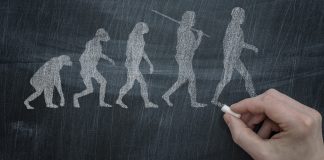Education: between the crisis of models and the source of models
Education is not the same as schooling. The role of the family, the group of friends, the community, the church, and so on must harmoniously complement the school's role in this process. However, in the end, anyone who wants to succeed in life will work on their personality and self-education.
Our parents’ need for meaning
No matter how much we avoid it, the day will come when our parents will not be able to get by without us, just as we would not have been able to grow up without them.
The pretext of ignorance is sold in different styles
Atheist evolutionists accuse Christians of offering explanations that blame everything on God when they have no other answer. In other words, God has become a pretext for ignorance. Without denying the fact that sometimes this is true, reality also has other facets.
Solving the World Cup puzzle
If there was a theme that could be attributed to the 2022 World Cup more than any other, it’s “murky ethics”. If you’ve got mixed feelings about this year’s edition of the prestigious 92-year-old tournament, you’re likely not alone.
When conflict occurs
Disagreements between husbands and wives happen no matter how much they love each other, and this isn’t necessarily bad. Conflict is normal in daily life, even for happily married couples. It happens when two very different people grow closer to each other and notice that they have different priorities, beliefs, habits and values.
How to navigate through pain
Loss begets pain, but pain is not one-size-fits-all, so there are no recovery methods that work in all situations. We do have at hand, however, explanatory models of pain, studies that dismantle myths about grief and, above all, "a psychological immune system" that helps us recover from painful experiences.
What exactly lies within us?
“What is mankind that you make so much of them, that you give them so much attention, that you examine them every morning and test them every moment?” (Job 7:17-18)
Are you really okay?
Let me ask you a question: if a friend of yours or I were to stand in front of you today and ask, “Are you OK?” how would you respond? Could you, or would you, share how you really are? As a society, we seem to be becoming more and more aware of the mental health crisis we are in. On 8 September, Australia...
Misunderstood attitudes of parents | How I came to understand myself
When I became a parent, someone told me that I would learn to be a child. However, I was determined to be more of an adult than ever and not repeat attitudes that I considered wrong, including those of my parents.
Sacred writings
How do the Christian Scriptures differ from non-Christian sacred writings (the Quran, Vedas, Dharmas, Book of Mormon, etc.)?
The price of pleasure | Favourite myths of the porn industry
Confessions of former porn addicts and their parents or life partners, as well as shocking confessions made by actors in the porn industry reveal what lies behind the XXX curtain.
“The Scandal of Grace” | A God who forgives (even) murderers
Contemplating a God who forgives any sin, no matter how monstrous, can be a stumbling block to those who believe there must be some reasonable limits to forgiveness. But it is also a reason for hope for those who might otherwise feel too sinful to seek Him.
Hudson Taylor | When the mountains move aside
Hudson Taylor undertook eleven journeys between Europe and China, and his mission prospered. He had one of the most complex and successful visions for evangelism.
The science of dining
I once invited the cashier at my local 7-Eleven petrol station to join me and my friends on a beach couch made of sand to eat hotdogs after his shift. To our surprise, he not only came but continued to join us for months after.
Do children ruin marital happiness? How to manage the changes generated by the birth of children
Describing the breakup of her marriage after the birth of her children, journalist Nora Ephron writes that a child is a grenade for the couple’s relationship. After the explosion, when the dust settles, “your marriage is different from what it was. Not better, necessarily; not worse, necessarily; but different.” [1].


























